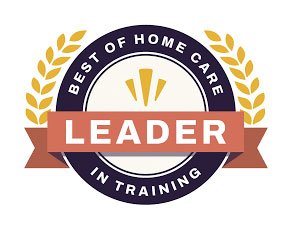
As your loved one’s condition progresses, one of your daily concerns is likely to be with their ongoing safety. Entering hospice care is one way that safety can be enhanced for people with a terminal condition. Below are some ways that we can help your loved one stay safe.
- Physical therapy for safe movement. One of the many types of care we provide is physical therapy (PT). When appropriate and the patient is able to participate, physical therapy aims to maximize mobility and functional independence. Our physical therapists help patients learn safe ways to stand, sit, walk, and perform other daily movements. This reduces the risk of injury and enhances the patient’s autonomy and comfort—even when staff are not directly present.
- Help managing medications and daily needs. While providing care to patients in their homes, we are able to help them manage their daily dosages of medications, ensuring that they are taking the right amounts. Our staff can also assist patients with seeing to other everyday needs.
- Fall prevention. Patients in hospice can be prone to slips, trips and falls, which can lead to injuries and complications. So, it is very important to be proactive in preventing falls. Hospice staff can assist you in modifying your loved one’s home so that it is well-lit, and features grab bars and other aids that help to prevent falls. They can provide you with suggestions and ideas for additional steps you can take to modify the patient’s home.
- Reducing distractions by improving symptoms. If you have had a debilitating medical condition before, you know how much harder it can be to focus on basic things when pain and other symptoms are getting in the way. The palliative care provided by the hospice can reduce these symptoms. This, in turn, can make it easier for the patient to focus as they go about their day. When they are focused, they are less likely to fall, take the wrong amount of mediations, or make other mistakes. This means they can stay safer.
- Emotional safety and support. We have focused primarily on physical safety in this article. But it is important to also mention emotional safety. Our staff are trained to prioritize patient autonomy, respecting the wishes of every individual. In doing so, we create a space in which patients feel not just physically safe, but emotionally safe, able to trust that the people who are providing their care have their best interests at heart.
Find Out How We Can Enhance Your Loved One’s Safety
During your consultation, we can discuss your loved one’s situation with you in detail, discussing the ways in which we help keep them safe and comfortable. We work closely with primary caregivers to create plans that are tailored to individual patients.
To learn more, please give us a call at (470) 395-6567. We provide care to patients and
their loved ones throughout the Atlanta metropolitan area.





